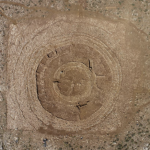Microglia are the brain’s innate immune cells, similar to macrophages in the rest of the body. Abnormal inflammatory responses by microglia are associated with various age-related brain conditions. This review focuses on the long-term effects of such overreactions after a stroke and the potential for mitigating excessive inflammation in treating age-related conditions.
Post-stroke cognitive impairment (PSCI) is a serious condition characterized by cognitive deficits that persist for up to 6 months after a stroke, impacting patient well-being and economics. While risk factors for PSCI are known, research on its mechanisms and treatments is lacking.
The role of microglia in PSCI is gaining attention. These immune cells are implicated in neuronal damage post-stroke, influencing cognitive deficits via various signaling pathways. Understanding microglial polarization into M1 and M2 phenotypes could offer therapeutic strategies to combat PSCI.





